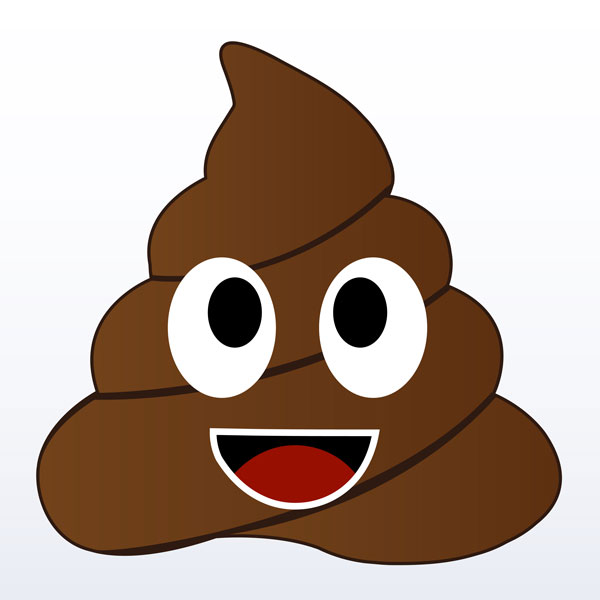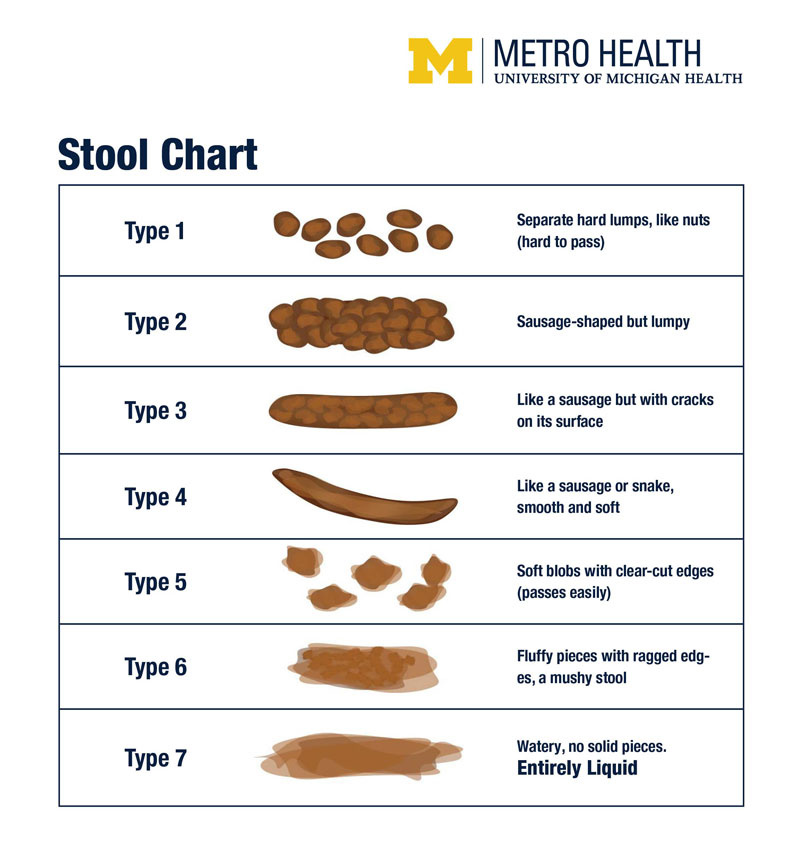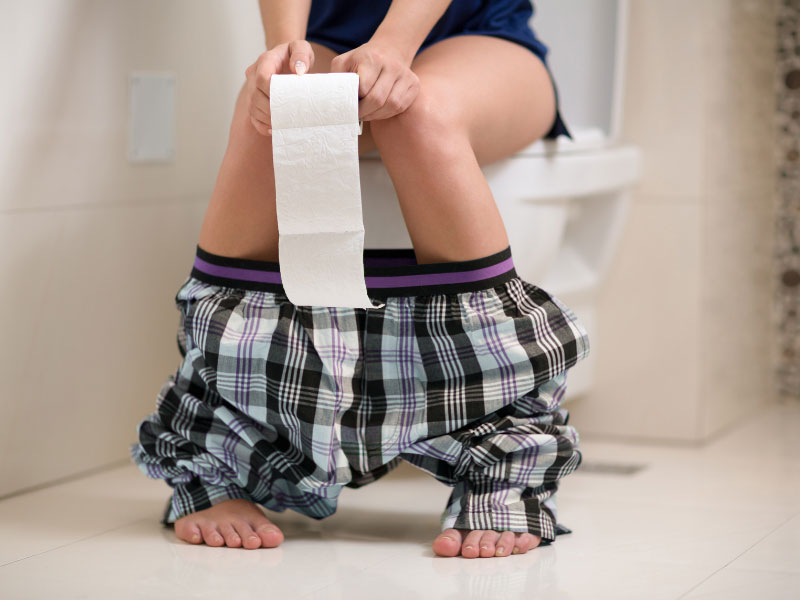Have you had the Poop Talk With Your Kid Yet? Surprise – Today is the Day.
There are many things parents need to teach their kids.
- Manners, like please and thank you.
- How to identify safe adults and how to navigate strangers.
- The ins and outs of brushing teeth, eating healthy, and caring for their bodies.
But I did NOT think I had to teach my kids how to assess their pooping life.
Newsflash: Talking to Kids About Healthy Poop is a Thing, and We all Need to Do It.
Yes, you need to talk to your kids about this, too. I’m sorry. I really am.

But unless you want to be checking your kids’s bowel movements when they’re 30, it’s a good idea to teach them how to monitor their own business.
It’s in everyone’s best interest.
Keeping an eye on the poo can let kids know if they are
- Dehydrated
- Have a GI bug
- Constipated
- Have an unhealthy diet
Dr. Dawn Rosser is a pediatrician at Metro Health’s southwest office, and she says we don’t have to be afraid to have the poop talk.
“Checking in with kids on their bowel habits is just as important as checking in to see if they brushed their teeth, bathed/showered, and put on clean underwear,” says Dr. Rosser.
“It’s a normal body function that should happen on a daily or nearly daily basis and be part of what keeps us healthy.
Talking to Kids About Their Bowels Is Truly Helpful
”You can inquire about these bodily functions just like you would ask them about their day at school or a play date with a friend,” she adds.
Dr. Rosser makes it sound so easy.
Okay, it actually is. I know because now that I’m reflecting on the past few weeks, I realize I’ve had many bowel movement conversations with my kids.
I won’t give you all the colorful details, but apparently we talk about poop at my house more than I realized. Maybe you do, too.
For example, one of my kids is constipated. This child was clueless that you’re supposed to drink a LOT of water each day.
Dude thought like a glass of water before bed was the norm. He literally does not drink water (or anything) at lunch or dinner, no matter how much I remind him to do it.
Thankfully he alerted me to his bathroom woes and I explained that this is why he needs to drink the water.
The pain of that experience is so burned in his mind (and maybe his behind) that he will forever drink a gallon of water a day to never feel that way again.
It’s good to be open about your kid’s poop habits.
If he hadn’t shared his bathroom woes with me, he might be dead now. Because that’s what it feels like when you’re constipated. Even if you do survive. You feel like you are gonna die. (Don’t pretend you don’t know what I’m talking about!)
How to Talk to Kids About Bowel Health At Different Ages
Preschooler Bowel Health
So yeah, even a preschooler can start learning about their poo.
Rule #1 of Preschooler Poop Club: Don’t ever touch the poop.
Rule #2 of Preschooler Poop Club: You DO talk about your poop. Tell mom or dad if you have weird looking poop.
“Talking to preschoolers about pooping is fairly easy,” says Dr. Rosser.
I mean, you’re in the trenches potty training the kid. You’ve had a lot of up close and personal experiences here, so just work the bowel health aspect into the conversation.
“You can discuss normal vs. abnormal bowel movements at that time,” shares Dr. Rosser.
And basically, let them know that if things look weird, to bring you in.
Yeah, you’ve still gotta be involved in the poop at this age. But don’t worry – your poop involvement lessens once they start school:
Elementary Age Bowel Health
Hazaah! These school age kids are handling the bathroom solo now!
But because of this, it may be even more important to enlighten them on bowel health.
“With elementary school kids, it can be brought up in regular conversation,” says Dr. Rosser.
“Just like when you ask them what they ate for breakfast or lunch, or how their day at school went, you can ask if they’ve been pooping regularly or if their BMs have been difficult or painful for them.”
Dr. Rosser is right. I literally saved my son’s emotional life when I helped him with his constipation. (See above)
Teenager Bowel Health
Since teenagers already think we are totally clueless weirdos, why not make their eyes roll back just that much harder and bring up poop talk?
Isn’t part of our jobs giving teens things they can complain to their friends about? And if they complain to their friends about their mom’s weird obsession with healthy poop, maybe their friends will learn a thing or two, too.
See? – Together, we can save the teen world from bowel problems.
“Don’t be surprised if you get the eyeroll or ‘That’s disgusting! I can’t believe you’re asking me that!’, when you try to discuss bowel habits with them,” warns Dr. Rosser.
She also advises against having a poop conversation over dinner. (Please also do not do this at the preschool or elementary age. Or ever.)
Dr. Rosser recommends bringing it up when you have one-on-one time with them.
“At the very least let them know roughly how often they should be having a BM & what it should look like, so if they notice an abnormality they can come to you with their concerns.”
Because while they will tell their friends nearly everything else happening in their life, you’re the only one they’re going to come to with a poop problem, eye rolls and all.
Isn’t parenting the best, most appreciated job in the world??
What to do When Your Kid’s Poop Becomes a Problem
What even IS normal bowel health??
It’s having a basic bowel movement every 1 – 3 days. This depends on how quickly your body digests its food.
“Transit times vary from person to person, and some people may even go more than once a day,” says Dr. Rosser.
This is normal.
Many parents worry about how frequently their kid poops, but Dr. Rosser says to not worry unless they’ve gone more than a week. At this point you should contact your doctor.
Trigger Warning: Healthy Poop Description Following.
I mean, you wanna know, don’t you? Here’s what’s normal:
Stools should be smooth like a sausage with very little bumps in it. It may come out in many small pieces or in a long snake-like form.
And now for an Unhealthy Poop Description
If it looks like hard rabbit pellets, a knobby corn on the cob, is painful to pass or causes bleeding, they may have some constipation.
If the stools are explosive and watery they may be having diarrhea or a gastrointestinal illness.
Other signs of unhealthy stool is if it’s white or yellow in color, or has excessive mucus.
Following are samples of stools your kids could encounter. Dr. Rosser says that types 1, 2 & 7 are not normal and should be monitored regularly. If this kind of stool persists, reach out to your physician.

Reasons for Unhealthy Poop
“Abnormal bowel movements can crop up for a variety of reasons at any age,” says Dr. Rosser.
Constipation
This wicked ruiner of fun. Thief of joy. Harbinger of excruciating pain.
Fight this evil by drinking water. And then more.
Because many kids who are constipated are simply dehydrated.
“Just for normal body function and maintenance, school-aged kids should drink an ounce of water per kilogram of their weight daily,” recommends Dr. Rosser.
For a simple calculation, divide your child’s weight by two. That’s roughly how many ounces they should be drinking of water daily.
Dietary changes can also cause constipation.
An increased intake of dairy or cheeses are known to be constipating as well as certain fruits like bananas. (I had a child whose sole diet was milk and bananas. She lived to regret it. Now her diet is milk, bananas and water. And no, I can’t convince her otherwise.)
Diarrhea
Woah, mister! We said drink more water, not juice. If you aggressively try to fight constipation with juice and fruits, you could cause a reverse problem.
But diarrhea could also be signs of a gastrointestinal illness. If their diet isn’t the culprit, then it could be a GI problem.
If it resolves itself in a few days, then you’re okay. But if it persists, the child could become dehydrated and you may need to contact your doctor.
The more you teach your kids about good bowel health, the less you have to be involved.
That is, unless that preschooler swallows a penny.
Good luck with that. I’m signing off.
Metro Health – University of Michigan Health
Multiple locations across West Michigan.
(800) 968-0051


